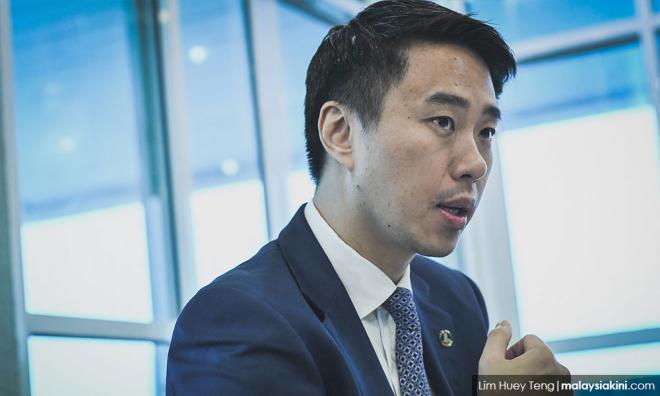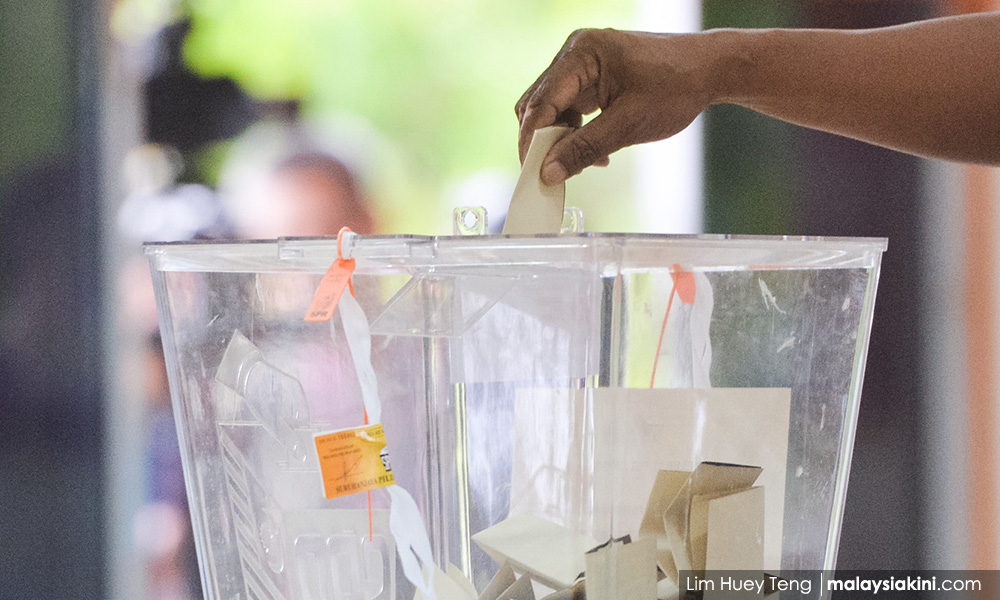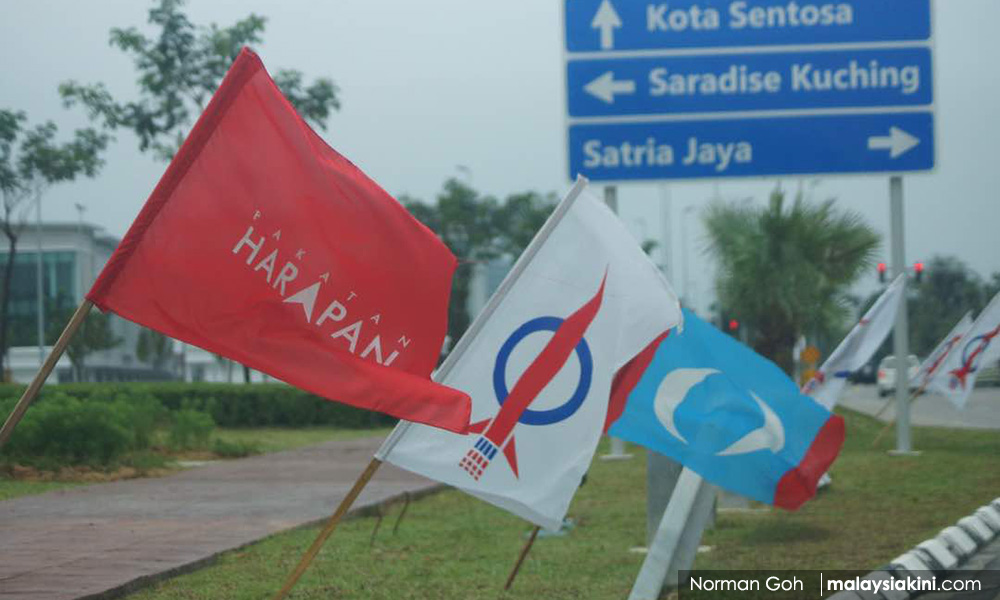
INTERVIEW | The "Sheraton Move" political coup in February hit the Sarawak PKR badly, with three of its five parliamentarians, including former works minister Baru Bian, abandoning the party together with three state assemblypersons.
With talk that the next Sarawak state election may be held together with the next general election soon, it is generally believed that the Gabungan Parti Sarawak (GPS) coalition - which controls 72 out of the 82 state seats - will easily retain power and perhaps even wrest back the seats held by the opposition.
GPS, formerly known as Sarawak BN, had deserted BN following its defeat in the 2018 general election. GPS has since has returned to Putrajaya, as part of the new Perikatan Nasional government.
The question that hovers is, can Sarawak PKR survive the GPS juggernaut in the forthcoming election?
In an interview with Malaysiakini, Sarawak PKR chief Larry Sng (above) said he was confident that his underdog party would perform better, winning eight to 10 state seats out of the total 44 it aims to contest.
"I am very hopeful that we will be able to perform better in the coming polls, despite the odds being stacked against PKR," Sng said.
"If all of our partners are able to pull through, we will be able to capture the state government," he said, adding that he expected DAP to contest 26 seats while Amanah would battle for 12 seats.
Sarawak has 36 Dayak-majority seats, 31 Malay-Malanau-majority seats and 15 seats where Chinese voters are dominant. DAP won most of the Chinese seats but unless it can penetrate the Dayak areas, its chances to increase its share of the State Legislative Assembly seats will be slim.

The Malay-Melanau community, meanwhile, is still firmly backing the PBB-led state government, making it harder for Amanah, which will be making its debut in the Sarawak polls.
It took PKR two decades to work with the grassroots before the party could even win a few seats in the Land of the Hornbill.
Today, household-name leaders like Baru, Saratok MP and Krian assemblyperson Ali Biju and Batu Lintang assemblyperson See Chee How are no longer with PKR.
Baru, the three-term Ba'kelalan assemblyperson and Selangau MP, has joined Parti Sarawak Bersatu (PSB), a new party formed by former Sarawak finance minister (II) Wong Soon Koh, a strong figure in Sibu.
PSB, formerly known as the United People's Party (UPP), is a splinter of Sarawak United People's Party (SUPP), one of the four ruling parties in GPS. Joining Baru in PSB was See, a two-term assemblyperson who was sacked from PKR.
Ali Biju, loyal to former PKR deputy president Azmin Ali, is now the deputy energy and natural resources minister after defecting to Bersatu.
Sng denied that the exodus of members that followed the leaders' defections was crippling, saying the state chapter had a strong membership of 80,000, while those who left only amounted to 300.
"I don't see PKR in Sarawak as fragile. I see this as a great opportunity for us to rejuvenate the grassroots. We have the opportunity to bring new talent and new blood into the party, which in the past was difficult.
"This was because there were so many entrenched groups and warlords who were only interested in serving their own interests," he said.

According to Sng, Sarawak PKR had not grown or reached its full potential in the past decade as many capable leaders had left while it was under the previous leadership of Baru, who was the state chairperson from 2009 until this year.
He noted, however, that the exit of these leaders allowed PKR to rope in activists who fought for land rights and environmental issues, including former Padungan assemblyperson and ex-Sarawak PKR chief Dominic Ng.
Sng vowed that PKR would contest and reclaim the seats held by the three former leaders in the forthcoming elections, adding he was confident that constituents would abandon the trio for betraying their vote.
"My assessment is that none of them (Baru, Biju and See) will win, despite being household names in their constituencies. Their move (to defect) was unpopular and they will be rejected by their communities at large," he said.
This has been proven in the past when voters ignored lawmakers who defected from their own parties, he added.
By the same theory, Sng sensed Sarawakians disliked how PN came to power together with GPS.
Despite this, he said he believed that what happened in Sabah, which led to the dissolution of the State Legislative Assembly, would not have any bearing on the coming Sarawak state election.
Sng also believed that the sentiment of the people, who are impacted by the shrinking economy due to the Covid-19 pandemic, would be reflected in the next general election.
Sng also revealed that PKR has some differences with its allies after it found out that they had discussed seat allocations with PSB on their own. As a result, these Harapan allies may concede a few seats to PSB.

"In view of this situation, unless PSB is brought into the coalition, only then can we look at the cooperation in totality," he said.
He warned that should DAP and Amanah concede their seats to PSB, Sarawak PKR would step in to contest in those constituencies.
PKR-DAP ties had once turned sour after they failed to settle their overlapping claims for five state seats on the eve of 2016 Sarawak election, leading to their dismal performance in the polls.
It is also worth pointing out that Sng was entrusted to helm the party's state liaison committee in March, barely two years after joining PKR. He was also elected as a party central committee member in the 2018 party polls.
However, he is not a rookie in politics.
Prior to joining PKR, Sng had spent the most part of his 17-year political career with three local political parties – Parti Bansa Dayak Sarawak (PBDS), Parti Rakyat Sarawak (PRS) and Sarawak Workers Party (SWP).
The 40-year-old was also an assistant minister in the BN state government from 2004 to 2011. - Mkini


No comments:
Post a Comment
Note: Only a member of this blog may post a comment.